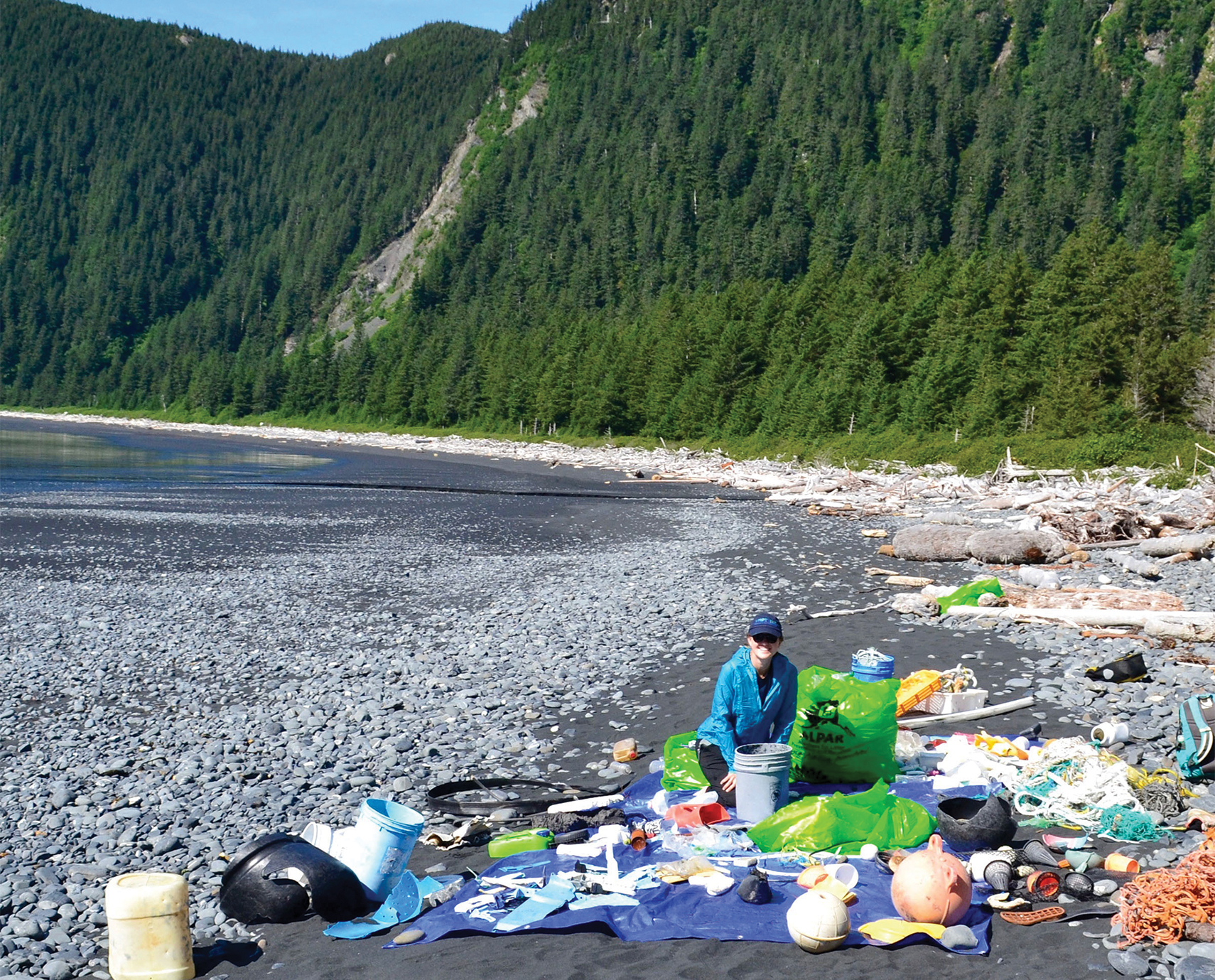Research Delves into Plastics Pollution
January 25, 2021
By
University Advancement Staff

As an avid advocate of the Chesapeake Bay and its tributaries, Peg Freeman became increasingly aware of the problems that plastics cause to our environment.
When presented with the idea of funding a student who could study and find a solution to marine plastic pollution, the Freeman family was pleased to help ensure the Virginia Institute of Marine Science could attract the best and brightest talent. The family’s $250,000 gift to VIMS fully funds doctoral student Meredith Evans Seeley in her research into plastics pollution.
“This research is really for future generations,” Freeman says, thinking of her grandchildren and great grandchild. “The rivers and bay are extremely important, and this research will be very significant in taking care of them.”
Plastics in the environment are doubling every 10 years, according to research by Robert Hale, a professor of marine science in VIMS’ Department of Aquatic Health Sciences who serves as Seeley’s advisor That’s not too surprising, given that the use of plastics has increased exponentially since it began being mass produced in the 1940s and ’50s.
Today, plastics are found in everyday items such as furniture, carpeting, electronics, cars and containers, and plastic microbeads are even ingredients in products such as skin lotions and toothpaste. Now these plastic products, slow to degrade, are in our waters, including the Chesapeake Bay, and collecting on shore and in marine life.
Filter feeders like the iconic Chesapeake Bay oyster, which filters immense amounts of water in search of digestible food, are disproportionately affected by marine plastics, as they increasingly consume nutrient-devoid, indigestible microplastics. These plastics may then be passed up the food chain — including to humans — where the additives and pollutants can accumulate in and cause harm to our bodies.
“As long as oil is cheap, plastic isn’t going anywhere. There is a big responsibility that we have to the oceans, in my opinion, to figure out what the effects are on even smaller scales than just animals eating plastics,” Seeley says in a video for VIMS’ “Deeper Dive” series. “No two plastics are created equal and [marine plastic] is a really huge problem that has been around for a while. There’s certainly been research done, but we’re not anywhere near where we need to be in understanding it.”
The partnership between VIMS and the Freeman family’s foundation creates a bridge between academic research, public interest and effective action on plastic pollution. Seeley partners with the outreach program at VIMS to share knowledge on marine plastic pollution with the public to have a wider impact on the community.
“The more that we can do even on a day-to-day basis, just talking to people about the plastics issues so they are more aware of what’s going on and make different choices in their day-to-day lives — that would make a big difference in the way people think about not only their plastic use, but also how the oceans respond to what we are doing to them,” Seeley says.